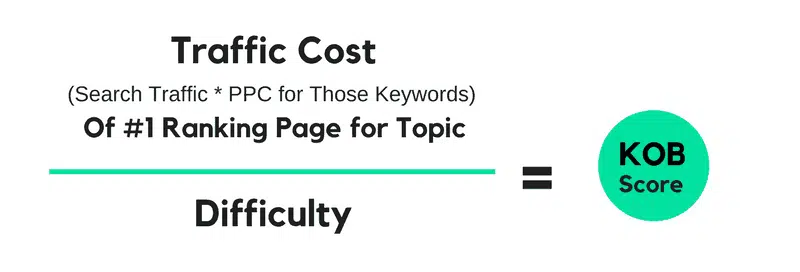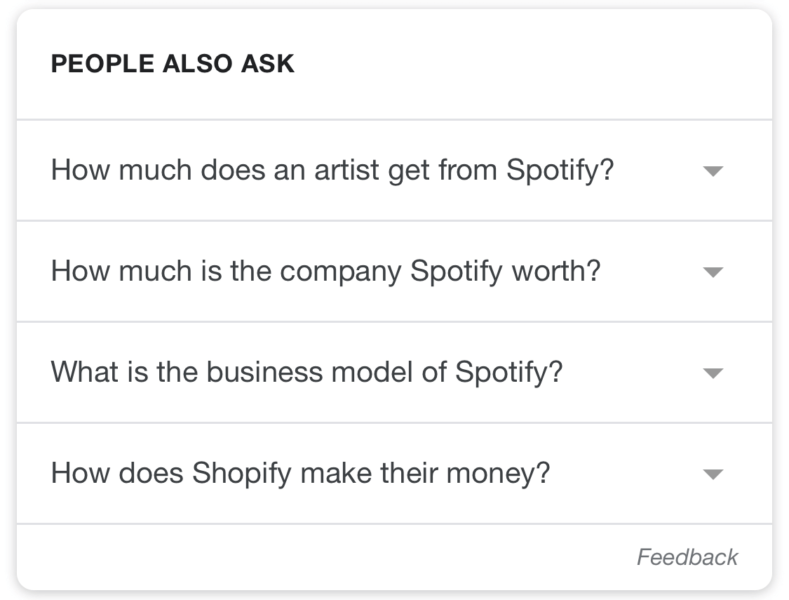Best Practices For Successful Keyword Research
Best Practices For Successful Keyword Research

Keyword research is an essential element of SEO and digital marketing that helps companies identify the terms and phrases that their target audience is searching for. By understanding the keywords that are relevant to their business, companies can optimize their website and content to rank higher in search engine results, attract more traffic to their site, and ultimately drive more sales.
The importance of keyword research for SEO and digital marketing is that it helps businesses to understand what their target audience is searching for, and how to best optimize their website and content to rank for those keywords and phrases in search engines. This can result in more traffic to the website, more leads and sales, and ultimately, more revenue for the business. Additionally, it helps to align the organization’s goals with the customer’s search intent, which helps in creating a better user experience.
One of the key benefits of keyword research is that it allows companies to identify low-hanging fruit, or keywords with high search volume and low competition, that they can easily rank for. Additionally, keyword research can help companies understand the search intent of their target audience and create content that addresses their specific needs and questions.
Another important aspect of keyword research is analyzing keyword difficulty and competition. By understanding how difficult it is to rank for a specific keyword and identifying gaps in the market, companies can make informed decisions about which keywords to target and how to optimize their website and content to improve their search engine rankings.
Overall, keyword research is a valuable tool for companies looking to improve their online visibility, drive more traffic to their website, and ultimately increase sales. It gives them a roadmap to guide their SEO and digital marketing efforts and helps them make data-driven decisions that lead to better results.
Identifying The Right Audience

Keyword research is a vital aspect of SEO and digital marketing that helps companies identify the terms and phrases that their target audience is searching for. By understanding the keywords that are relevant to their business, companies can optimize their website and content to rank higher in search engine results, attract more traffic to their site, and ultimately drive more sales.
To identify your target audience for keyword research, you can:
- Create buyer personas
- Analyze your website data
- Research your competitors
- Use keyword research tools
- Conduct surveys and interviews
By identifying your target audience, you can ensure that the keywords you research and target are relevant to the people you want to reach and will be more likely to drive conversions.
Top 6 Practices For Keyword Research
Studying Search Volume & Ranking Difficulty
Studying search volume and ranking difficulty is an important aspect of keyword research that can help companies understand the potential traffic and competition for different keywords.
Search volume refers to the number of times a specific keyword or phrase is searched for on a search engine. High search volume keywords generally indicate a large audience and high potential traffic. However, it’s important to note that high search volume keywords also tend to be more competitive.
The ranking difficulty, on the other hand, refers to the level of competition for a specific keyword. It measures how difficult it will be to rank for a keyword on search engine results pages (SERPs). By understanding the difficulty of ranking for a specific keyword, companies can make informed decisions about which keywords to target and how to optimize their website and content to improve their search engine rankings.
Studying search volume and ranking difficulty together can give you a good idea of which keywords to target that have a good balance of potential traffic and competition. This way, you can optimize your website and content to rank higher in search engine results and attract more traffic to your site.
Avoid Keyword Stuffing

During the 90s, a tactic known as keyword stuffing was used to drive traffic to websites. This technique involved using the same phrase repeatedly, regardless of its relevance to the content. Some bloggers also tried to conceal the text by making it the same colour as the background, so that search engines would pick it up but it wouldn’t be visible to users. This method was used to exploit the way Google’s algorithms worked at the time. Over time, the algorithm improved and now stuffed articles can be identified, making the article rank lower.
How to avoid keyword stuffing?
Here are a few ways to avoid keyword stuffing:
- Use keywords naturally: Incorporate keywords in a way that makes sense and flows naturally in the content
- Use variations of keywords: Instead of repeating the same keyword, use variations and synonyms to create a natural-sounding text
- Limit keyword density: Maintain a reasonable level of keyword density, ideally between 1-3%
- Use SEO tools: Utilize SEO tools to check keyword density and identify issues that may be hurting your search engine rankings
- Write for human readers: Always prioritize human readers over search engines, and create content that is informative, engaging, and easy to read
By avoiding keyword stuffing and creating natural, high-quality content, you can take the necessary steps to improve your website’s search engine rankings and user experience. Not only will this help your website to rank higher in search engine results pages, but it will also make it more likely that users will engage with your content, stay on your website longer, and potentially convert into customers.
3. Understanding The User Intent
It is crucial to have a clear understanding of your target audience and their needs. Your first step should be to create buyer personas that match your typical customers. Once you have a better understanding of the demographics and psychographics of your audience, you can develop more relevant and helpful content. By putting yourself in their shoes and figuring out the phrases they use when searching for answers online, you can create content that addresses their specific needs and queries.
For example, if a user searches for “How Deep Is the Grand Canyon?”, your content should answer the question in the first paragraph and then provide additional information about how the canyon was formed, etc. Additionally, if someone searches “How Can I Become a Teacher?”, your website should offer an article that explains the process based on the state they live in, the education they need and the licensing requirements.
It’s important to keep in mind, that you should not try to rank for a keyword if you’re not able to answer the user’s question. If your post does not match the user’s intent, it is unlikely to rank well for that phrase.
4. Keyword Objection To Benefit (KOB) Analysis

KOB Analysis is a method used in keyword research to identify the most profitable keywords for a business by analyzing search volume, competition, and potential revenue. It helps to prioritize keywords based on their potential to drive conversions and revenue for the business.
5. Avoid Keyword Cannibalization
Keyword cannibalization is a situation where multiple pages of a website target the same or similar keywords, which can negatively impact the search engine rankings of those pages. This happens when a website has multiple pages that are competing for the same keywords, instead of each page targeting a unique set of keywords. This can lead to confusion for search engines, which can make it difficult for them to determine which page should rank for a specific keyword. As a result, the search engine may choose to rank a page that is less relevant or less authoritative, which can hurt the visibility of the website.
How to avoid keyword cannibalization?
Here are some effective methods for avoiding keyword cannibalization:
- To prevent redundancy, use a thesaurus and research-related but distinct phrasing.
- Take the time to understand the meaning of different words and see if a different subject aligns better with your goals.
- Use a keyword mapping technique to assign specific keywords to specific pages on your website
- Use analytics tools to monitor your website’s performance and identify pages that are competing for the same keywords
- You can also check out Google’s “People Also Ask” section to find out related ideas targeting different keywords.

Learn From Your Competitors
Studying your competitors is a crucial aspect of keyword research and can help you to identify the keywords and phrases that are working well in your industry. By analyzing the keywords that your competitors are targeting, you can get an idea of the phrases that are relevant to your business and have a high search volume. This can help you to identify new keyword opportunities and optimize your website and content to rank higher in search engine results pages (SERP).
One way to study your competitors is to analyze their websites and content. Look at the titles, headings, and meta descriptions of their pages to identify the keywords they’re targeting. You can also use tools such as SEMrush and Ahrefs, which can give you a detailed analysis of your competitors’ keywords, backlinks, and organic search traffic.
Additionally, by monitoring your competitors’ search engine rankings, you can identify which keywords are driving their traffic and conversions. This can help you to optimize your website and content to rank for those keywords and drive more traffic to your site.
Conclusion
In conclusion, keyword research is a vital aspect of SEO and digital marketing that helps companies identify the terms and phrases that their target audience is searching for. By understanding the keywords that are relevant to their business, companies can optimize their website and content to rank higher in search engine results, attract more traffic to their site, and ultimately drive more sales. By following best practices such as identifying your target audience, studying search volume and ranking difficulty, avoiding keyword stuffing, and studying your competitors, you can improve your website’s search engine rankings, attract more traffic, and drive more conversions.
Remember, keyword research is an ongoing process that should be regularly monitored and updated to ensure that your website is always optimized for the most relevant and profitable keywords.
